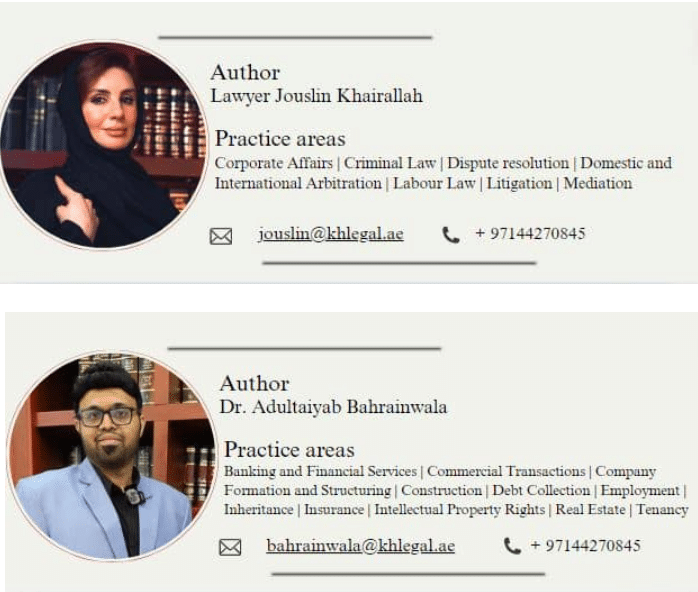Divorce in the United Arab Emirates (UAE) reflects the country’s unique legal landscape, blending Sharia principles, personal status laws, and an evolving legal system that accommodates a diverse population. As a major hub for expatriates from around the world, the UAE has established frameworks that provide options for both Emiratis and expatriates seeking divorce, balancing traditional values with the modern realities of family life. In this blog, we explore the intricacies of divorce in the UAE, examining the processes, legal requirements, and unique considerations that apply to residents of varied nationalities and religious backgrounds.
1. Legal Framework Governing Divorce in the UAE
The UAE’s legal system governing divorce stems primarily from the Personal Status Law, which outlines the rights and responsibilities of spouses within marriage and the legal protocols for divorce. Islamic (Sharia) law guides the divorce process for Muslim couples, while expatriates and non-Muslims have the flexibility to pursue divorce under either UAE law or the laws of their home country.
Recent legislative updates have reformed aspects of personal and family law to provide additional clarity and flexibility, addressing the specific needs of non-Muslim residents who may have different cultural and legal expectations regarding divorce. With these updates, the UAE has demonstrated a growing responsiveness to the diverse needs of its residents, establishing a legal environment that accommodates multiple legal systems and ensures fairness in family matters.
2. Types of Divorce: Sharia and Civil Options
Divorce for Muslims Under Sharia Law
For Muslim couples, divorce in the UAE follows Islamic principles, which are designed to ensure equitable treatment of both parties. There are several recognized forms of divorce in Sharia, each with its own procedural steps and implications:
Talaq (Repudiation): Talaq is the unilateral right of a husband to initiate a divorce, typically requiring the husband to declare his intent to divorce his wife. While historically this process could occur without court involvement, UAE law requires the husband to register his intent to divorce with the court, providing a measure of formality and legal oversight. The wife, however, retains the right to contest the decision, especially if there are issues related to financial support or child custody.
Khula (Mutual Agreement): Khula is a process where a wife may initiate divorce with the husband’s consent, often through a mutual agreement. In a khula arrangement, the wife may be required to relinquish part or all of her financial rights, such as the dowry (mahr), to secure the divorce. This is usually a quicker route, avoiding lengthy legal procedures and allowing both parties to reach a mutual agreement on their separation terms.
Judicial Divorce (Tafreeq): A wife can seek judicial intervention for a divorce on specific grounds, such as harm or mistreatment. In such cases, she must provide evidence, which is reviewed by the court, to justify the divorce. If proven, the court may grant the divorce and determine any necessary compensation.
Divorce for Non-Muslims and Expatriates
Additionally, recent amendments under Federal Decree-Law No. 41 of 2022 have further refined the options available to non-Muslims, introducing a civil family court in Abu Dhabi that offers an English-language process and aligns more closely with international legal standards, thus providing non-Muslim couples with a culturally compatible legal recourse.
3. Divorce Procedures and Requirements
For both Muslim and non-Muslim couples, the divorce process typically begins with a mandatory reconciliation session. Administered through the UAE’s Family Guidance Committee, this session aims to provide counselling and support, helping couples explore the possibility of reconciliation before proceeding with formal divorce. If the reconciliation attempt is unsuccessful, the case is then referred to the Family Court, where formal proceedings begin.
Key steps in the divorce process generally include:
Filing a Petition: The petitioner (person seeking the divorce) files an application with the Family Court. Documentation, such as marriage certificates, passports, and other relevant documents, must be provided.
Reconciliation Attempts: The Family Guidance Committee meets with the couple, aiming to help them find an amicable resolution. If reconciliation fails, the couple is given a no-objection certificate, allowing them to proceed with court proceedings.
Court Proceedings: Depending on the type of divorce (Talaq, Khula, or judicial), the court will evaluate the case based on the evidence and testimony presented. The judge will make determinations regarding the divorce itself and issue rulings on child custody, alimony, and asset division, where applicable.
Final Judgment: Once the court has assessed all relevant factors, a judgment is issued. In many cases, the judgment includes details on financial obligations, child support, custody, and spousal maintenance.
4. Key Considerations in Divorce Proceedings
Child Custody and Guardianship
In the UAE, child custody and guardianship are governed by Sharia principles for Muslim couples and are influenced by civil laws for non-Muslims. Custody typically refers to the day-to-day care of the child, while guardianship involves broader responsibilities, such as decision-making authority over the child’s education and healthcare. Courts in the UAE prioritize the best interests of the child, and, typically, mothers are awarded primary custody of young children, while fathers maintain guardianship rights.
Financial Support and Alimony
Alimony (or spousal maintenance) is decided based on the financial capacity of the husband, the standard of living during the marriage, and the specific needs of the wife post-divorce. The court evaluates these factors to determine a fair amount, ensuring that the wife and children, if any, are provided adequate financial support following the dissolution of the marriage.
Division of Assets
Unlike in some countries where joint marital assets are split equitably, the UAE follows different principles. For Muslims, marital property remains under individual ownership unless otherwise agreed, meaning each party retains ownership of assets registered in their name. However, expatriate couples from jurisdictions with joint property laws may request that their home country’s laws be applied to the division of assets.
5. Recent Legal Reforms Impacting Divorce
In line with its commitment to modernization and inclusivity, the UAE has introduced reforms in family law aimed at providing greater legal autonomy and protection for its diverse population. The recent changes, including Federal Decree-Law No. 41 of 2022, have made it easier for non-Muslim expatriates to navigate divorce procedures, particularly through the civil family court established in Abu Dhabi. This court provides a streamlined process and removes certain procedural barriers, ensuring that non-Muslim couples can have divorce proceedings handled in a way that respects their cultural and legal backgrounds.
6. Preparing for Divorce: Practical Steps and Legal Advice
For individuals contemplating divorce, the following considerations can aid in preparation and reduce complications:
Understand Applicable Laws: For expatriates, knowing whether UAE law or home country law applies to divorce is critical. Consulting a lawyer early can help clarify which legal system aligns best with the individual’s needs and objectives.
Prepare Necessary Documents: Gather all essential documents, including marriage certificates, proof of residency, financial records, and any existing
agreements between spouses. These documents will streamline the process and support the court’s decision-making.
Seek Professional Guidance: Navigating a divorce can be legally complex and emotionally taxing. Engaging a family law specialist in the UAE ensures that individuals understand their rights and obligations throughout the process.
Conclusion: Navigating Divorce in a Diverse Legal Landscape
Divorce in the UAE requires a nuanced understanding of both Islamic and civil law, balancing the diverse legal and cultural needs of its residents. With recent legislative updates, the UAE is continually evolving to accommodate its global population, offering flexible options for Muslim and non-Muslim couples alike. By understanding the available legal avenues, preparing diligently, and seeking professional support, individuals in the UAE can approach divorce with clarity and confidence, securing fair outcomes for all parties involved.
What you need is to have next to you one of the best lawyers in Dubai, who is up to date, and knows how to address your needs efficiently and effectively.
Contact Khairallah Advocates & Legal Consultants and benefit from our free 30-min legal consultation.
*Disclaimer: our blogs, law updates, and FAQs are freely distributed for educational purposes and to showcase recent updates and regulations in the UAE’s framework.
If you have any questions and need assistance, contact us at our number or book an appointment online.




